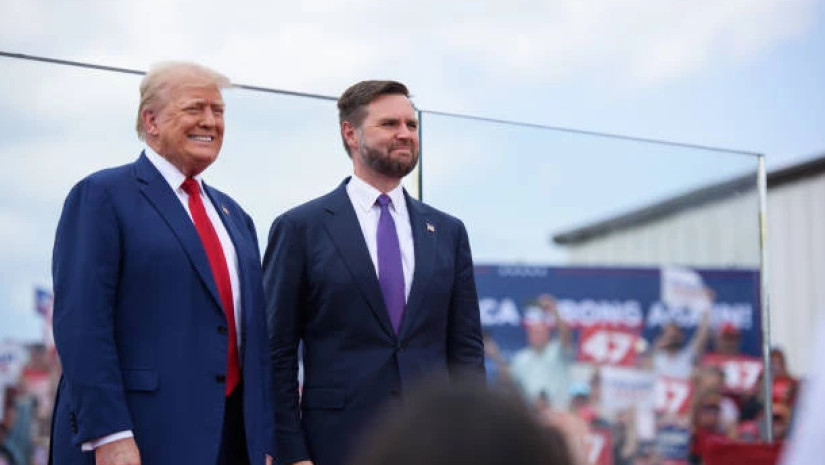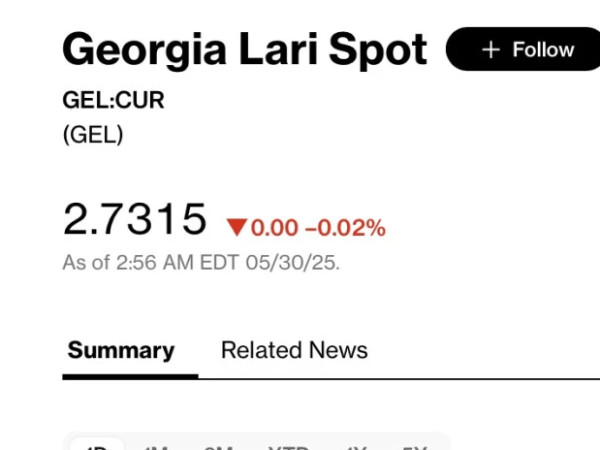Vice President JD Vance said Wednesday that Russia is “asking for too much” to end its war with Ukraine, underscoring new frustrations in the Trump White House over its efforts to court Moscow on peace talks.
Speaking to the Munich Leaders Meeting in Washington, he said that the U.S. is focusing on a long-term settlement since Russia has rejected the U.S. call for a 30-day ceasefire. Moscow has said that sort of temporary pause is not in its strategic interest because it would allow Ukraine to regroup.
Vance stressed that Russia is likely to have to make concessions — the latest sign that the Trump administration is willing to get more aggressive with Russian President Vladimir Putin.
“The Russians are asking for a certain set of requirements, a certain set of concessions in order to end the conflict. We think they’re asking for too much,” Vance said.
The vice president was channeling growing impatience in the White House with Putin. Late last month President Donald Trump said Putin may just be “tapping me along” and suggested he may employ sanctions to change the dynamic.
“Maybe he doesn’t want to stop the war,” Trump said of Putin on his Truth Social platform in April. The post came after Trump met with Ukrainian President Volodymyr Zelenskyy in Rome.
Vance said in his speech Wednesday that Trump was prepared to walk away from the talks but stopped short of threatening sanctions.
He said the next step is to get Ukraine and Russia to agree to talk to each other.
“We would like both the Russians and the Ukrainians to actually agree on some basic guidelines for sitting down and talking to one another,” Vance said. “That is the next big step we’d like to take.”
He said that he’s “not yet a pessimist” on the process even though there’s “a big gulf” between where the Russians and Ukrainians are. He said that “it’s probably impossible” for the U.S. to mediate between the parties without them having at least some direct contact.
Vance, speaking to the audience of senior transatlantic leaders visiting Washington, struck a much more diplomatic tone than his fiery speech before the Munich Security Conference in February and touted the importance of U.S.-European ties, saying that they are on the “same civilizational team.” The Munich Leaders Meeting is put on by the Munich Security Conference organization.
With tension palpable in the room — filled with many sharp critics of Trump and skeptics of his administration’s approach to transatlantic ties — Vance said he was “having fun” at the confab and joked that his team was “very nervous.”
He said he was not sure he would be invited back to address the group after his February appearance in Munich. There he stunned the audience by lashing out at European governments, criticizing them for ignoring the will of their people, overturning elections, ignoring religious freedoms and failing to stop illegal migration.
At the end of the question-and-answer session with former German ambassador to the United States and chair of the Munich Security Conference Wolfgang Ischinger, Vance revisited his controversial speech. While his tone was more conciliatory, he repeated his warnings for the continent, which he said also applied to the U.S.
“It’s not ‘Europe bad, and America good,’” he said. “I think that both Europe and the United States, we’ve gotten a little bit off track, and I’d encourage us all to get back on track together.”
Vance’s remarks appeared to calm tensions among those gathered at the meeting in Washington at least a little.
“I came into the speech pretty nervous,” said one conference goer, a Western European. “I left slightly less nervous.”
Another attendee noted the softer tone but said “there were a lot of questions left unanswered. How many concessions are you willing to offer Russia? If Ukraine can’t join NATO what will you do to prevent future Russian invasions? Because without hard defense commitments to Ukraine we all know it will happen again.”
Some remained troubled by his attitude toward Moscow. All participants were granted anonymity as the two-day event was held under Chatham House Rules, which stipulates that participants may be quoted but not their names or affiliations, to facilitate more candid conversations.
“He charmed, he cleaned up from the February speech, he reassured, he made everything okay,” said a third participant. “But to come off as somehow neutral between Russia and Ukraine is morally repugnant. One side is the aggressor, one the victim fighting for its survival. Nice speeches can’t change that.”
As Vance spoke, the United States and Germany’s new government were in a fresh public spat over Berlin’s decision to label its far-right political party, the AfD, as an extremist group.
Secretary of State Marco Rubio lambasted the decision by the German government last week as “tyranny in disguise” and said the establishment parties’ “deadly open border immigration policies” were what was extremist.
New German Chancellor Friedrich Merz called that an “absurd observation” in an interview with public broadcaster ZDF on Tuesday.
“I would like to encourage and exhort the American government to leave German domestic politics to Germany and to largely stay out of these partisan considerations,” he said at that interview.


















